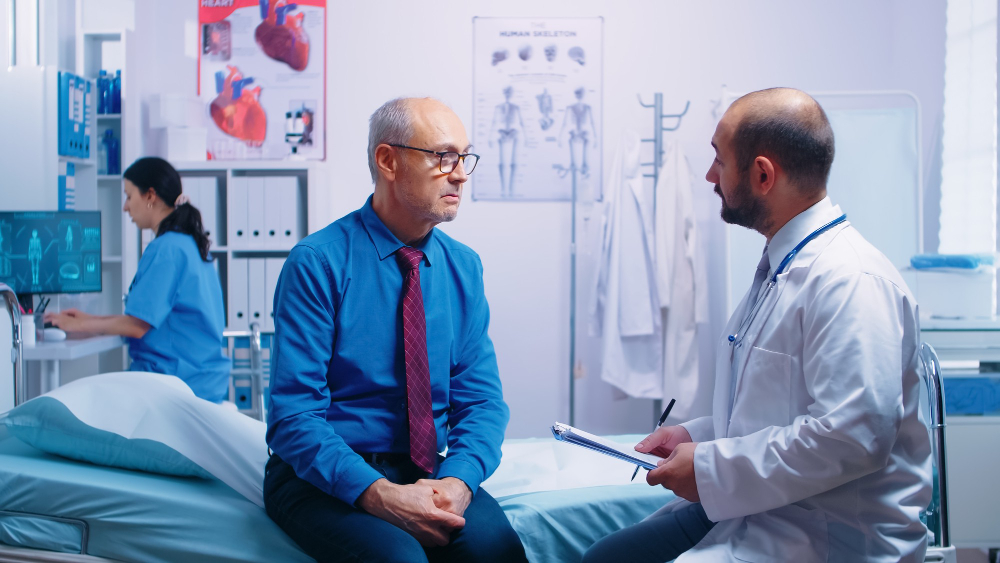Gastrointestinal (GI) cancers can be sneaky. They often start with subtle symptoms that many people ignore or mistake for minor stomach problems. But when caught early, many types of GI cancers can be treated effectively. That’s why seeing a Gastrointestinal Physician regularly can make a big difference. These specialists are trained to find issues in the digestive system, sometimes before symptoms even begin.
From colon cancer screening to testing for stomach cancer symptoms, gastrointestinal physicians play a crucial role in detecting cancer early. If you live in Peoria, AZ, it’s important to know how these specialists help with early signs of GI cancer and what tests are used for cancer detection.
What Does a Gastrointestinal Physician Do?
A gastrointestinal physician, also called a gastroenterologist, focuses on the digestive system. This includes the stomach, intestines, liver, pancreas, and esophagus. They treat everything from acid reflux and ulcers to more serious conditions like digestive tract tumors and gastrointestinal cancer.
These doctors use advanced tools and tests to examine the inside of the GI tract. Common procedures like endoscopy and cancer detection tests help them see the lining of the stomach or colon. They also perform biopsies for gastrointestinal issues, which means removing a small tissue sample to check for cancer cells.
Gastroenterologist vs Oncologist
You might wonder who to see first — a gastroenterologist or an oncologist. A gastrointestinal physician is often the first doctor to notice something wrong in the digestive system. If they detect cancer, they’ll refer you to an oncologist, a doctor who treats cancer. So, early detection usually starts with the GI specialist.
How Can GI Doctors Detect Early Signs of Cancer?
Gastrointestinal physicians are trained to spot early warning signs that could lead to cancer. They look for things like unexplained abdominal pain and cancer symptoms, changes in bowel habits, bleeding, and weight loss. These signs can sometimes point to colorectal cancer warning signs or other forms of GI cancers.
One of the key benefits of seeing a GI doctor is that they can find and remove polyps, which are small growths that can turn into cancer. Polyps and cancer risk go hand in hand, especially in the colon. Removing them early helps prevent cancer before it starts.
They also keep track of your health history and risk factors for GI cancers, such as family history, age, smoking, and diet. This helps them decide when to begin cancer screening and which tests to use.
What Tests Are Used for Cancer Screening by Gastrointestinal Physicians?
GI doctors use several tools to find early signs of GI cancer. One of the most common is the colonoscopy, a test used for colon cancer screening. This procedure uses a thin, flexible tube with a camera to look inside your colon and rectum. It helps find polyps and remove them before they become cancerous.
Another test is the upper endoscopy, which is used to look at the esophagus, stomach, and small intestine. This test helps identify stomach cancer symptoms like bleeding, ulcers, or suspicious growths. If something looks unusual, the doctor may take a biopsy to test the tissue.
Other tests include CT scans, stool tests, and blood tests that can show signs of cancer or inflammation. These cancer detection tests are often recommended based on age, symptoms, and other risk factors.
Cancer Screening Guidelines
The cancer screening guidelines say that adults should begin colon cancer screening around age 45 to 50, or earlier if there’s a family history. Talk to your GI doctor in Peoria, AZ, to find out when you should start and how often you need testing. Screening saves lives by finding cancer before it spreads.
Symptoms That Might Point to Gastrointestinal Cancer
Catching cancer early depends on knowing what to look for. Common symptoms of gastrointestinal cancer may include ongoing abdominal pain, changes in appetite, trouble swallowing, or blood in your stool. Many people think these symptoms are caused by something simple like indigestion, but they could be signs of something more serious.
Other warning signs include unexplained weight loss, fatigue, or feeling full after eating just a little. In the case of colorectal cancer warning signs, look for narrow stools or a sudden change in bowel habits that lasts more than a few days. If any of these issues stick around, it’s time to call a gastrointestinal physician.
People who already have certain digestive disorders, like Crohn’s disease or ulcerative colitis, are also at higher risk for GI cancers. These individuals should have more regular screenings to catch any changes early.
Why Early Detection is Critical in GI Tract Cancer Diagnosis
When GI tract cancer is found early, treatments like surgery or medication are much more likely to work. That’s why routine checkups and screenings with a GI doctor are so important. Cancer caught at an early stage hasn’t had time to spread, which often leads to better outcomes.
In many cases, early GI tract cancer diagnosis can lead to simple treatments rather than aggressive therapies like chemotherapy. This can reduce both the physical and emotional stress that often comes with cancer treatment.
When cancer is found late, it may have already spread to other organs. At that point, treatment becomes more complicated. The key is to act early — don’t wait until you feel really sick.
Risk Factors for GI Cancers in Peoria, AZ
People in Peoria, AZ, should pay attention to their lifestyle and medical history. High-fat diets, lack of exercise, obesity, smoking, and alcohol use all increase the risk of gastrointestinal cancer. If these risk factors apply to you, getting screened earlier and more often could be life-saving.
Conclusion
Yes, a gastrointestinal physician can absolutely detect early signs of cancer. Through careful exams, smart use of cancer screening tools like endoscopy, and knowledge of what to look for, these specialists play a vital role in catching cancer before it becomes serious. If you live in Peoria, AZ, staying on top of your digestive health could make all the difference.
Whether you’re having symptoms or just want peace of mind, don’t wait. Schedule a visit with a Gastrointestinal Physician in Peoria, AZ and take a proactive step in preventing or detecting cancer early.





